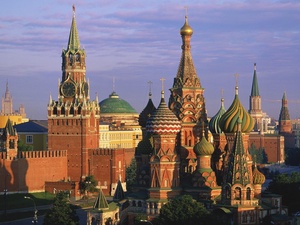Last week, President Vladimir Putin, who has now been in office nearly as long as Brezhnev and exhibits many of the same droning tendencies, told a stunned energy conference that by 2035, Russia would run on 90 percent clean energy.
Last week, President Vladimir Putin, who has now been in office nearly as long as Brezhnev and exhibits many of the same droning tendencies, told a stunned energy conference that by 2035, Russia would run on 90 percent clean energy.
It was a jaw-dropping claim made even more amazing by the ease with which he claimed such a turnabout would occur. At present, he said that Russia – a known fossil fuel behemoth whose brittle economy is enslaved by the price of oil – already relies on clean energy for 84 percent of its power needs, so bouncing up another six percent is no big deal.
Barely anyone took him seriously.
The official press regurgitated the claim with stenographic fatigue and it passed into the annals of alternative fact as soon as China’s Xinhua news agency repeated it for an international audience.
 Vladimir Putin. (Photo: Kremlin.ru)
Vladimir Putin. (Photo: Kremlin.ru)
No one else bothered to pick Putin’s remarks up. Meanwhile, Russian Energy Week, the forum he addressed, ended by discussing, as it has in years past, how to divide the future between the oil, gas, coal and petrochemical industries.
Indeed it takes some sloppy arithmetic to claim a country that relies on all four of those things for 67 percent of its energy somehow derives 84 percent of its power from clean sources. It would take sorcery to grow clean power production to 90 percent in seven years when only 3.5 percent of Russia’s energy comes from renewable sources.
So what is behind this sudden enthusiasm for clean energy – if in name only – in a country whose president views climate change as an economic bonanza and who routinely refers to alternative energy as a joke?
Mainly, it’s a question of potential.
According to a recent article in the Financial Times, Russia could, if it wanted, drive up its renewable energy portfolio to 11.3 percent of consumption by 2030.
That article reported on a buzz started by the International Renewable Energy Agency, which in April published a paper suggesting that Russia, at a government level, was actively scouting out renewables and working out ways to plug them in on a large scale.
The government’s current plans, IRENA reported, would see renewables providing 5 percent of Russia’s power by 2030.
But wait! – the paper argues – for an investment of $300 billion over the next seven years, Russia could boost that share to 11.3 percent by the same year.
 Credit: Still from Obama Administration White House video
Credit: Still from Obama Administration White House video
To put that in context, that’s three times Luxembourg’s gross domestic product. It’s also 100 times the yearly budget allocated by the federal government to Rosatom, the state nuclear corporation, which Putin routinely sites as producing clean energy of its own – leaving a loose interpretation on how clean waste that has to be stored for hundreds of thousands of years before it ceases to be lethal actually is.
Despite those costs, which involve overcoming other creative math difficulties, Russia’s energy minister, Alexander Novak, endorsed the IRENA report as something Russia might actually consider as a roadmap.
It’s not all that far-fetched. The 2009 UN climate summit in Copenhagen marked the watershed moment when Russia – the world’s fifth biggest emitter of greenhouse gases – stopped denying that climate change was real. Ever since, Russia’s environmental oversight agencies have been putting out yearly reports on the local impact of global warming and how to deal with it.
Russia also brought some grudging commitments to the Paris agreement, saying it would reduce its carbon emissions to 25 or 30 percent below its 1990 levels – not the best, but surely no worse than anyone else. And, ahead of this year’s climate talks in Bonn, Moscow said it would expand its solar and wind production by ten percent. It also promised to stop methane intensive flaring at its oil and gas fields – which doesn’t sound like much, but is far more specific than Moscow has been in the past.
The real stunner, however, came in June during St. Petersburg’s yearly economic forum when Anatoly Chubais, Russia’s original free marker reformer, made the case that the country was poised to lead the world in wind energy and battery production. The renewable revolution, he said, would realign Moscow’s economic priorities – if only the government had the courage to invest.
Chubais claimed, somewhat frighteningly, that the green energy switch would hit Russia with “the force of the Great October Socialist Revolution.”
Since then, even Rosatom has jumped on board. In September, the company announced it would shoot for making 30 percent of non-nuclear profits in lithium for electric car batteries.
Still, there are real impediments to some sort of green revolution taking root. Gazprom and oil giant Rosneft have for years operated with the authority of government ministries, and are staffed at the top by wealthy Putin cronies. No green revolution is going anywhere until those two fossil fuel giants sign off on it.
But at the heart of Putin’s bogus statistics lies a reasonable theory that Russia, albeit at a plodding pace, be trying to inch closer to cleaner energy production. After all, in the words of Brezhnev, there is nothing more practical than a good theory.






